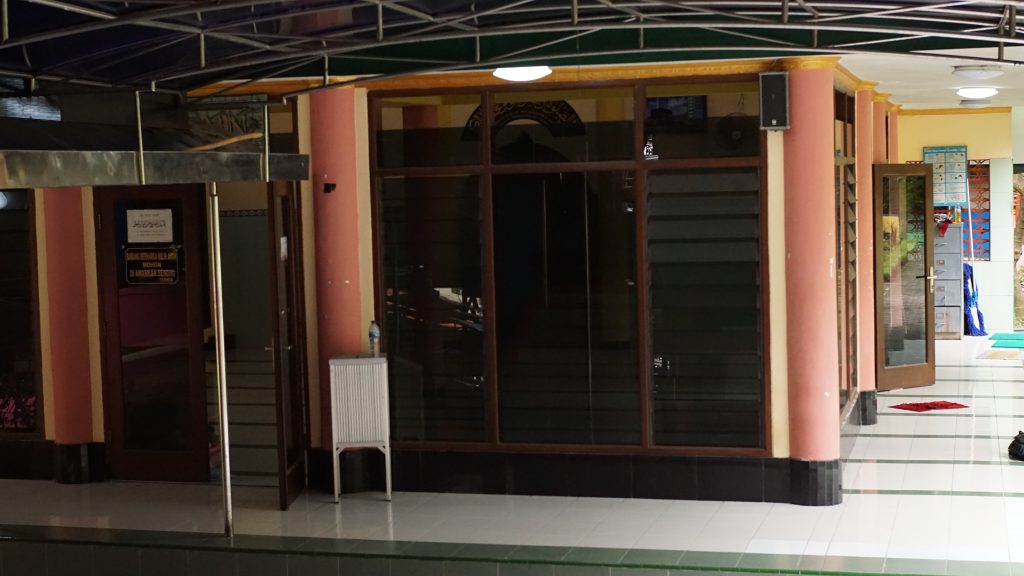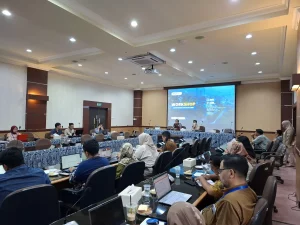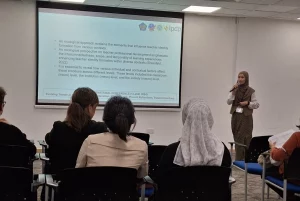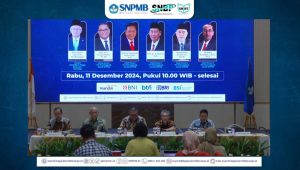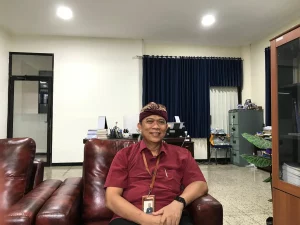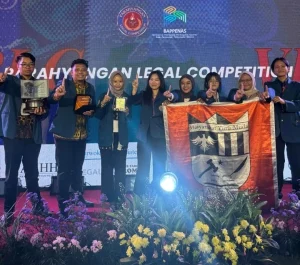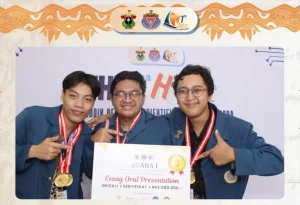In today’s information-based economy, knowledge is considered as a critical and effective resource for assisting businesses in establishing departmental synergies, accelerating innovation, providing value to customers, and increasing revenue through market growth. Knowledge sharing behavior is defined as individual behavior that pertains to the exchange of information, experience, ideas, and skills with other individuals or groups of people inside an organization in order to enhance the company’s sustainability.
Knowledge is seen as a valuable resource in today’s knowledge-based economy. This might happen because an organization’s readiness to adapt to global developments in terms of knowledge possession is highly influenced by high-quality resources within the company. Some experts have stated that numerous industries will continue to seek, maintain, and grow information, and the efficacy of knowledge management will be assessed by knowledge sharing behavior among corporate personnel. Knowledge is considered a source of competitive advantage, and in the face of a dynamic business environment, the organization also needs to focus not only on efficient information processing but also on knowledge creation. If companies wish to gain a competitive advantage, they must manage their knowledge, and those with fascinating and distinctive expertise will have a better chance of entering a competitive industrial market.
This study will examine the middle managers of Bank Syariah Mandiri in Indonesia who will be involved in the formation of PT Bank Syariah Indonesia Tbk. (BRIS) which is considered to have a significant multiplier effect on the national economy and economic growth by merging three Islamic banks which are members of the Association of State-Owned Banks (Himbara). Bank Syariah Mandiri (BSM) is known to be very aware that the process of distributing knowledge management must be managed in a structured and comprehensive manner, because it can support the dissemination of knowledge management, on the other hand, Bank Syariah Mandiri has carried out knowledge management (KM) activities since 2012. The implementation of knowledge management was marked by the kick off of the knowledge management program which was held on June 19, 2013. Bank Syariah Mandiri has a goal of implementing knowledge management, namely as an innovative and knowledge-based Islamic bank. From this basis, Bank Syariah Mandiri has been able to formulate a roadmap for the implementation of knowledge management with the following description.
This type of research includes research with a quantitative approach, which is carried out for testing theories by means of measurements that emphasize numerical data (on the variables studied and then analyzed using statistical test tools. This study uses a sample survey of a population with a questionnaire as a research tool in collecting data and analyzing respondents as research subjects. The data that has been obtained are tabulated and then processed using a statistical test of structural equation modeling (SEM – Amos). Measurement of knowledge sharing self-efficacy (X1), enjoyment in helping others (X2), intention to share knowledge (Y1) and knowledge sharing behavior (Y2) variables were measured using a Likert scale. Likert Scale was used to test how strong the responses of agreeing or disagreeing were given by respondents to the statements presented. The Linkert scale used in this study has five scales with 1 (strongly disagree) to 5 (strongly agree).
The results of this study can be taken into consideration for employees and managers in creating and improving knowledge sharing behavior in the workplace. Middle manager of an independent Islamic bank will be able to maintain the knowledge sharing factor of self-efficacy and enjoyment in helping others so as to realize a strong intention, because the middle manager is the center of an organization that must be able to influence other individuals or groups. This is necessary because a strong belief will create an easy sharing of knowledge sharing both in terms of independent Islamic banking products or services as well as knowledge related to the existence of a merger.
Several limitations of this study need to be addressed. First, this study only considers the responses of respondents who work at Bank Syariah Indonesia; therefore, it is recommended in future research to cover different populations such as in other banking contexts or other public services. Second, data were collected at the same time for this study. The use of further research can use longitudinal research to support associations developed through data collection at different times so that research results are more accurate. Third, the assessment in this study uses a quantitative approach. To get a broader answer, it is recommended to continue research with a qualitative approach. Fourth, this study does not use control variables such as company size, company age and type of industry as part of the study. So, it would be better if further research uses control variables to enrich the findings. Moreover, examination of different mediating variables should be considered in future studies to enrich knowledge in this area.
Author Information: Anis Eliyana
Detailed information from this research can be viewed on our article at:
https://journals.sagepub.com/doi/full/10.1177/21582440221078012
(Testing the Determining Factors of Knowledge Sharing Behavior)


